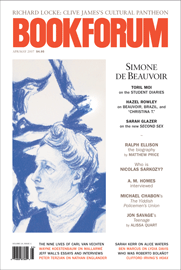
Forget Internet dating: Any city dweller who’s spent an afternoon walking a cute pup down the street will tell you that owning a dog is the surest way to make and sustain a connection. In Cathleen Schine’s meringue-light new novel The New Yorkers, canines of all shapes, sizes, and degrees of lovability unite a disparate collection of Manhattanites living on the same charming, rent-controlled street, an easy dog walk from Central Park. It’s an ordinary Upper West Side street that escaped gentrification, a street where people moved after graduating college and never left.”There are no mansions there, no narrow houses of historical importance, no plaques attesting to former residents of consequence. . . . And yet, it was the loveliest street I have ever lived on,” says the nameless narrator.
The street is home to thirty-nine-year-old Jody, a chipper music teacher and violinist, owner of Beatrice, an”oversize pit bull mix so white it was almost pink.” Jody develops a crush on the recently divorced Everett, a middle-aged chemist with an unexpectedly beautiful smile, who is not a dog owner and secretly believes that”[d]ogs . . . were inconveniences. The very word was used in phrases that were exclusively negative: someone dogged your steps or there were dog days on which you were dog tired. Old books were dog-eared. You lay down with dogs and woke up with fleas, after which you went to the dogs.”
Everett lives in the same building as the ebullient young copy editor Polly, who owns Howdy, a yellow puppy she finds in the closet of the apartment she moves into after breaking up with her boyfriend, Chris. George is Polly’s achievement-impaired older brother,”a handsome young man, in a pale, romantic, unhealthy, dark-haired way”; he works as a bartender at the Go Go Grill, owned by Jamie, who also owns two cairn terriers and, in violation of all New York health regulations and common sense, permits dogs on the premises. There is also a villain: the energetic dog hater Doris, a modern-day Cruella De Vil in an SUV, who spends the bulk of the story trying to get the city to enforce its pooper-scooper laws.
Schine is the author of six previous novels, including Rameau’s Niece (1993) and The Love Letter (1995), and her chosen beat—that of the well heeled, witty, and fundamentally decent—is a tough one to walk. Her comedies of manners center on people who are middle- and upper-middle-class, polite, and only mildly eccentric. If they are cruel, it’s a passing mood and not part of a larger personality disorder. Their dramas aren’t ripped from the proverbial headlines, or even the back pages. The problems they suffer—with surprising equanimity—are the standard ones of the well off.
While Michiko Kakutani dubbed Claire Messud’s The Emperor’s Children a “highbrow Friends,” Schine’s tale might be thought of as The Emperor’s Children, Ten Years After. Schine also traffics in the ambitions and anxieties of a group of sophisticates, but these sweet-natured dog owners are less high-strung, less narcissistic, and, therefore, somewhat less insufferable. They are also, mostly, middle-aged.
But conflict tends to elude characters who are sane and mostly happy, and if the otherwise seductive narrative of The New Yorkers is marred by the occasional patch of episodic aimlessness, it’s due to the essential levelheadedness of Schine’s people; the most extravagant, ill-advised act is that of Jamie, who allows dogs back into the Go Go Grill on Thanksgiving, after the local health inspector has paid a visit and threatened to close him down.
An additional challenge in writing a novel set among relatively affluent modern-day urbanites is the lack of friction in their lives. It’s not easy to create plausible roadblocks for characters who fear the wrath of neither God nor the health inspector. Unlike Edith Wharton—to whom Schine can be compared—who had the inviolable and ridiculous constraints of nineteenth-century New York society with which to torture her characters, Schine must fall back, again, on her characters’ inclinations to make bad choices, which they rarely do.
Fortunately, we have the dogs, with demands constant enough to serve as rules. The dogs that must be fed. The dogs that must be bathed. The dogs that must be taken out several times a day, in every kind of weather. Hour by hour, day by day, they insist on it, and so their owners are at their mercy. The dogs force community connection and offer Schine the opportunity to do what she does best: mine the interstices of life, the offhand moments when a random thought can lead to the subtle gesture that changes everything. Early in the story, when it looks as if Everett might act on his attraction to Jody, whose”existence was both delightful and impersonal for him,” he impulsively calls down to her from his window and realizes he”had thought far less of Jody than he had of his own remarkable behavior.”
As so it goes throughout the seasons: One resident parries, another thrusts or doesn’t, and the ever-obedient pit bull mix Beatrice trains herself to please her master by urinating on the front tire of dog hater Doris.
The ending is a happy one, as it must be in a book with so many cute pet tricks. A dog dies, someone moves away, someone else finds a new job, and one couple find true love. It sounds like faint praise to say that Schine is a companionable author, a good hostess, but The New Yorkers offers the basic appeal of a well-told tale; it’s the perfect book to read while sitting on a bench, your dog asleep at your feet.
Karen Karbo is the author of a cultural memoir, How to Hepburn: Lessons on Living from Kate the Great, forthcoming from Bloomsbury.
